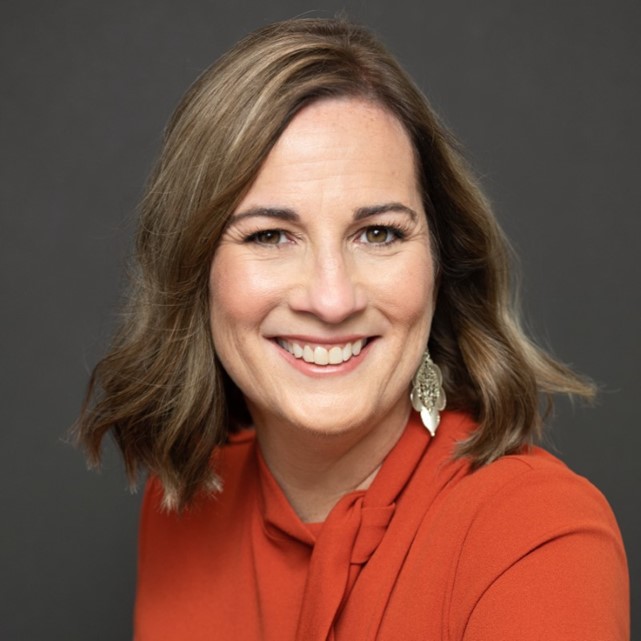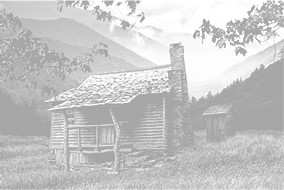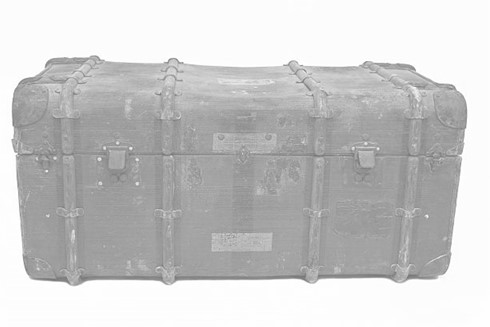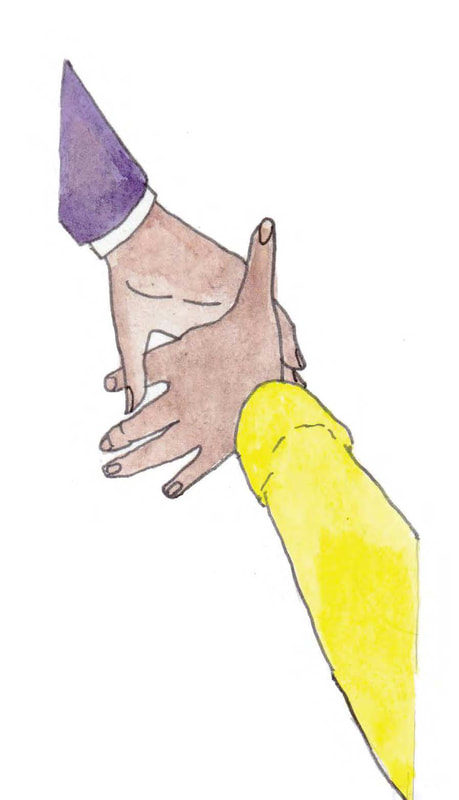A Trunk Full of Shame
 Laneita’s story
Laneita’s story
Laneita is a nurse who brings her expertise as a “sur-thriver” of “big T” and “little t” trauma to leading trauma education at Wake Forest Baptist Medical Center. Her goal is to bring awareness to how trauma impacts the patient experience. “The hope is,” she says, “that we will minimize re-traumatizing the patient and improve their outcome, as well as decrease the stress burden on providers, and the frustration.” She uses a curriculum that she created to instill trauma-informed approaches throughout the organization.
Listen to Laneita reading her story. Music: A call of the heart! – Spiritual music (Yaima, Rising Appalachia, Lulacruza, Hang massive) Dj Aditya.
In a rural North Carolina town near the foothills of the Blue Ridge Mountains lived nine children in a one-bedroom house that some would say was a shack. The mother, a strong woman, was living; the father was deceased, stolen from life early when there was still so much to be done.
 Poverty in white and black rural America in the 1930s and 1940s was widespread, dismal and despairing. There seemed to be no way out of the utter lack, no escape from the dust and desperation.
Poverty in white and black rural America in the 1930s and 1940s was widespread, dismal and despairing. There seemed to be no way out of the utter lack, no escape from the dust and desperation.
»Listen It was December, the weather was severe, and the struggles were harder. Christmas was a luxury. The nine children counted themselves lucky when they were each promised a glass bottle of Coca-Cola for Christmas. But the cold and frost tore through their excitement when they woke up on Christmas morning to find that their drinks were frozen, and the bottles cracked from the cold.
As the mother looked at their tattered clothes and sad faces, she knew it would take sheer grit to escape this poverty. Jobs were scarce, with only those willing to work in any capacity able to survive. Life was about earning every step and every bite of food, hand to mouth, day to day. It was not about fairness. Schooling was a luxury. Going to 5th or 6th grade was enough because by then, the child would be strong enough to work and bring in money to support the family. No one had any ambitions. It was only about survival.
Fast forward to 1969, when a young girl was born into this family. This story would be told to her many times during her childhood, but to her, it was not just a story; it was a deep wound she inherited, impacting every breath and choice she made.
»Listen Adversities such as physical and emotional neglect or abuse find each other, like a bee to pollen and then the pollen is spread, or in this case, the adversity spreads.Not all troubles are the same, with some people bringing neglect, others bringing abuse or the confusion and pain of community in conflict. When two individuals merge their different adversities, these will often be combined and passed to the next generation.
I was the girl born in 1969, another receptacle of merged adversities. Although I had overcome the lack, the dust and the desperation, and my life had many more monetary opportunities; it did not protect me from thought processes that would increase the risk of even further damages. In some ways, my life was so much better, but the challenges were more considerable in other ways. What a complex ancestral inheritance I received without either parent knowing they were giving me toxic gifts. My parents did the best they could, but the gifts of shame, abuse, toxic family dynamics, beliefs, behaviors and culture poured into me.
They, trapped in their own journeys, attempted to break free by finding job security. They became masters of a trade that would promote their financial status and allow them to thrive in safe ways they never had. »Listen They joined a local church, looking for acceptance and safety, attempting to mirror the church and community actions. But what they and I found was a trunk full of shame always thrust upon us, a heavy burden that we had nowhere to put.
 The church became a zone of judgement, and our family cell became two things; the first was how the church saw us, which were the ones to be talked about, judged and used as an example of what not to be and then secondly, the family that carried secrets, never spoken of or shared for fear of more judgement or embarrassment. The church did not accept divorcees or single parents and held deeply racist beliefs to the point that my mother was contacted and warned about letting me be friends with a biracial child. This child ended her life. »Listen The church provided a breeding ground where deep and dark traumas could never be shared for fear of their harsh judgement. I felt abandoned by people and by God.
The church became a zone of judgement, and our family cell became two things; the first was how the church saw us, which were the ones to be talked about, judged and used as an example of what not to be and then secondly, the family that carried secrets, never spoken of or shared for fear of more judgement or embarrassment. The church did not accept divorcees or single parents and held deeply racist beliefs to the point that my mother was contacted and warned about letting me be friends with a biracial child. This child ended her life. »Listen The church provided a breeding ground where deep and dark traumas could never be shared for fear of their harsh judgement. I felt abandoned by people and by God.
During one event of sexual abuse, I remember holding my Bible, which was pulled from my hands and tossed across the room as I was asked, “Where is your God now?” I didn’t tell my parents or the church. Why would I? The church held just as much of a warped, twisted belief as many abusers. I would have been shamed and accused of being the cause while the abusers would be protected by beliefs that “They could never do that!”.
The more trauma I experienced, the more pain I carried, and the more hate grew in me, not for the perpetrators but for the church. I could see my family story, their pain, grief, sorrow, fears, anger, struggles and grit to survive, but I no longer respected the many Christians around me. They no longer liked me, the person who would speak about sex, abortion, drugs, alcohol, HIV, or anything that was a cultural taboo. They would discourage any talk of such things while I encouraged understanding and root causes. I told my pastor about the marital abuse I suffered, many kinds, but he just said it was my job to submit and then preached on the female’s role to the man the following Sunday.
I eventually divorced, and that was deeply judged and laced with shame. People who divorce, have biracial relationships, are LGBTQ, have had an abortion, struggle with addiction, promiscuity, or were Muslims, Catholics, Jews or Jehovah’s Witnesses, would all go to hell and are to be avoided. I didn’t believe in their hell, fire and fury approach. I believed God loves all and knows each journey and their story, understanding challenges we are often blind to.
My thoughts were not controlled by fear but by love, which was foreign to my church.
Eventually, I was asked to leave the church I had attended since I was two-years-old. “It’s probably not the right fit for you.” I was told. I had not missed a Sunday service for 14 years. It did not matter. What mattered was that I didn’t fit their specific profile of being a white, rural Christian, who submitted herself to her husband no matter the abuse. They struggled with me not becoming a glossed, painted, quiet, meek female drinking their harmful beliefs and denial.
When asked to leave the church, I vowed to break away from such poisonous mentalities and sought healing from sexual abuse, emotional abuse, and centuries of transmitted ancestral trauma. »Listen I decided I would devote myself to the next generation by becoming a seeker and ferocious learner of what trauma can do to us neurologically, socially, physiologically, and psychologically. And what to do about it. I studied, worked, and bled, confronting my sticky demons in counseling, and eventually emerging with some self-worth and value.
what to do about it. I studied, worked, and bled, confronting my sticky demons in counseling, and eventually emerging with some self-worth and value.
Thirty years I did this, thirty years without the church. Then one day, I knew others didn’t have to wait thirty years to have support, and I created a curriculum called Trauma Informed Care, based on research around adverse childhood experiences. The curriculum gives knowledge, understanding, and respect for our shared experiences in a judgment-free zone, allowing and promoting self-paced healing.



